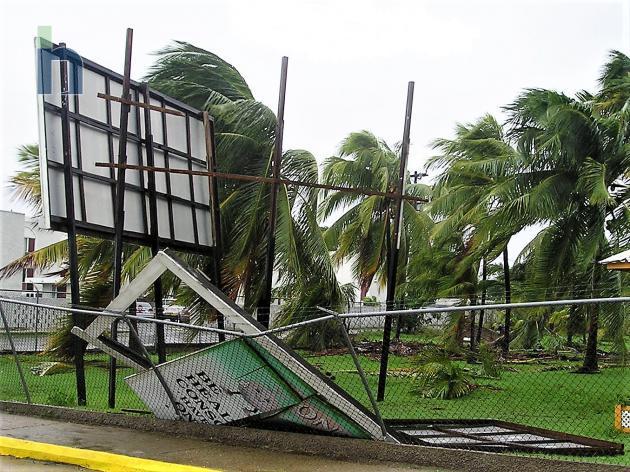Prepare Now for the Hurricane Season
- By Tanya Thompson
- Jun 2, 2017
- Updated Jul 1, 2019
-
6m
-
3
- RSS

Since 1986, I have learned a lot about how to prepare for a hurricane, as I believe is the case for many of us who experienced Hurricane Gilbert or were devastated by Hurricane Ivan, another hurricane, or even the recent floods that hit Jamaica in May of this year. I have learned to always be prepared. So should you, if you want to protect yourself, your family and your property.
The official hurricane season is June 1 to November 30, so the time to act is now. Experts are predicting the 2017 hurricane season to be busier than ever, with an above-average number of named storms, including four to seven hurricanes, of which two to four could grow to category 3 or higher.
The bottom line is that it's impossible to know for certain if one or more major hurricanes will strike Jamaica. However, keep in mind that it doesn’t hurt to be prepared, and that even a weak tropical storm can cause major impacts, as we saw earlier in May this year when there were lots of flooding in Jamaica due to heavy rainfall.
Here are 14 tips that you can use as a guide.
1) Know your evacuation route and target.
It could be simply be another section of your house, as it was in our case. Or you could move to another neighbour, another friend or a relative. Otherwise, identify the closest shelter to your home from the Office of Disaster Preparedness Emergency Management. They also have a list of ODPEM Emergency Contact Numbers that you can have to hand.
2) Stock up on your emergency items.
In the same way that most of us have a first-aid kit, we should all have an emergency kit, packed with flashlights, batteries, candles, matches, a battery-powered radio, a whistle to signal for help if needed, and copies of important documents (e.g., passports, proof of home insurance). You’ll also need to ensure that you’ve enough kerosene lamps, water boots, bottles for storing drinking water and water to be used around the house (e.g., for cleaning, flushing toilets), can openers, clothing, sheets or other items that you may need to have on hand during a storm, for using in and around the house or to take with you if you have to leave quickly (e.g., cash).
3) Know what supplies to get-together if you’re planning to stay home.
Make a list. Add food that doesn’t need refrigeration or even cooking (e.g., tins of corned beef and sardines, dried fruit, nuts, peanut butter, jelly, milk powder, coffee, tea, soft drinks, pet food, sugar, salt, crackers, granola bars, raw vegetables, bread, sweets). If you list foods that you use regularly, you’ll be sure to have some on hand at all times reducing the need to stand in long lines or not being able to get what you need just before a hurricane hits, while reducing the likelihood of the shelf life of the food items expiring. Add other necessary items, such as toilet paper, drinking water, kerosene oil if you choose to use that for lighting, candles, batteries, petrol or diesel if you have a generator, and cooking gas if you’re running low. If you’ve babies or toddlers in the house, you’ll need extra diapers and baby wipes. If you need special medication, you’ll need to stock up on what you have on hand assuming a need for at least 5 days supply. We each have our own list of requirements.
4) Know where to find all your emergency equipment and supplies.
Add that to your list.
5) Keep your property safe.
Trim trees during the hurricane season, securely fasten anything that a hurricane could further damage (e.g., loose rain gutters, loose zinc), and keep the yard free of items that could easily cause destruction or harm if they get tossed into the air during a hurricane (e.g., concrete blocks). Remember hurricanes can move cars and planes, so small stuff like concrete blocks are not a challenge to them.
6) Clear drains.
Clear any drains you have on the property to reduce the probability of flooding.
7) Purchase a generator.
if you can afford one, get it. If you already have a generator, test to make sure that it is working, and keep sufficient petrol or diesel on hand in a safe storage container preferably kept away from your main house in a shed or garage.
8) Prepare for battening doors and windows.
If you haven’t any wood or shutters already on hand, get some, along with whatever tools and equipment you’ll need to get them in place (e.g., hammer, drills, screwdrivers, nails, and screws). If not using shutters, you’ll need to cut the wood you obtain to fit the windows.
9) Get plastic bags and sheets of plastic or tarp
You can use plastic bags to store important documents and other items, and sheets of plastic or tarpaulin to prevent furniture from getting wet.
10) Insure your home.
Property owners and renters can insure their home against hurricanes and flooding, as this is not a standard feature of a home insurance package.
11) Know where to store your car safely.
If you can, find a secure place to store your car prior to a hurricane.
12) Plan for your pets.
Animals are not allowed inside emergency shelters, so if you need to evacuate, you’ll need to determine where to take your pets. If you leave them behind, they’re likely to get lost, injured, stolen or worse. They’ll also need to eat, drink, and even poop, so you’ll need to plan ahead (e.g., by having newspapers and pet food on hand to use).
13) Keep backups.
Backup the data on your electronic devices (e.g., computers and phones) to off-site locations.
14) Discuss with your family.
Meet with your family to discuss what to do in the event of a hurricane, and where to go or whom to call if you’re unable to be there for them.
In closing
I hope that you learn from the tips we’ve collated for you to use as a guide, so that you can protect yourself, your family and your property this hurricane season.
Keep safe.
This article is for general information purposes only and does not constitute legal advice. For more property-related articles and news, check us out at Nohuts.com.



